Nusantara: Indonesia’s bold new capital and China’s rising influence
China is playing a major role in Indonesia, not least in the relocation of Indonesia’s capital from Jakarta to Nusantara, where China is involved in areas from infrastructure to high-tech industries. Researcher Michael Hutahaean and academic Chen Xiangming tell us more.
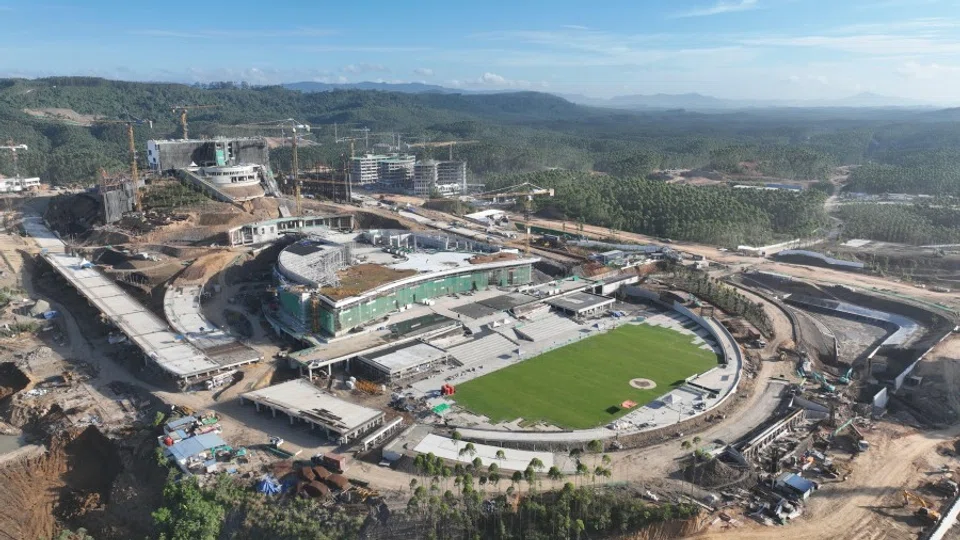
Indonesia is set to move its capital from Jakarta to Nusantara (also know as Ibu Kota Nusantara/IKN), a newly established smart city in East Kalimantan. Announced by the 6th president of Indonesia, Joko “Jokowi” Widodo, in 2019, this flagship project — estimated to cost US$32 billion — aims to build a smart and sustainable forest city.
The move aims to alleviate the multiple burdens on Jakarta while spurring development in a less developed region. However, funding remains a key hurdle — only about one-fifth of the budget will be covered by state funds, with the remainder expected to come from private and foreign investments.
As of May 2025, Chinese companies have invested nearly 70 trillion rupiah (US$4.3 billion) in Nusantara.
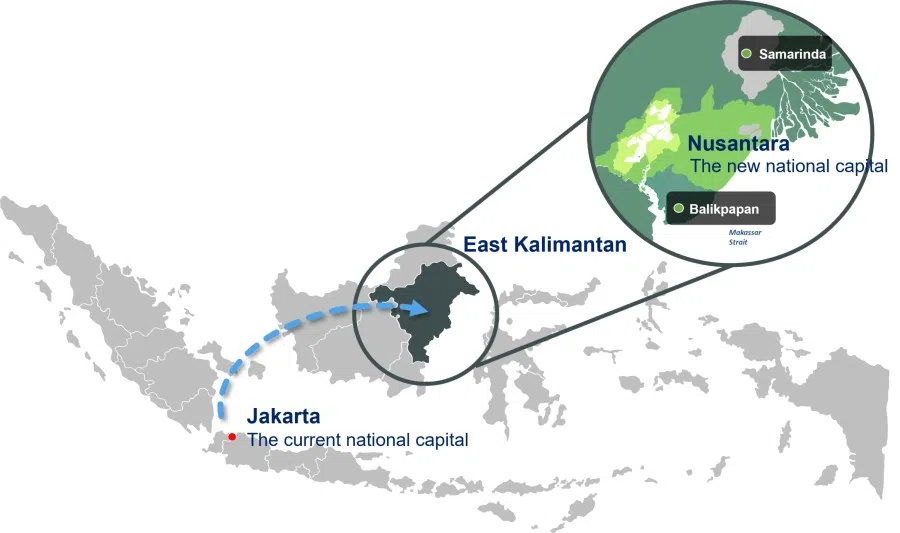
In this context, China has emerged as a prominent international partner. In late 2024, a Chinese firm named Delonix Group became the first foreign investor to break ground in Nusantara. Since then, Chinese companies have shown a growing interest in the new capital’s infrastructure and key sectors, including transportation, energy, digital systems, industrial development and housing.
As of May 2025, Chinese companies have invested nearly 70 trillion rupiah (US$4.3 billion) in Nusantara. Furthermore, by 26 May 2025, the Nusantara Capital City Authority reported receiving 36 letters of interest from Chinese companies — 32 for Public-Private Partnership (PPP) schemes and four for direct investment.
These developments underscore Indonesia’s efforts to secure international partnerships for its capital relocation plan, as well as China’s growing involvement in shaping emerging infrastructure and economic zones in Kalimantan, Indonesia.
Why Nusantara matters
Indonesia’s decision to relocate its capital is driven by urgent practical and strategic reasons. Jakarta, the current capital of the island of Java, faces serious challenges, including overcrowding, traffic congestion, heavy pollution, frequent flooding and land subsidence, which is causing the island to sink.
Home to about ten million people (over 30 million in the metropolitan area), Jakarta’s infrastructure is overwhelmed — traffic gridlock costs an estimated US$4.5 billion in economic losses per year. By relocating the capital, Indonesia aims to alleviate Jakarta’s burden and extend the lifespan of that megacity by decentralising some population and economic activity.
... the government aims to distribute growth more evenly across the archipelago, particularly by stimulating investment in Kalimantan and other outer regions, ultimately reducing Indonesia’s long-standing reliance on Java-centric development.

Beyond Jakarta’s challenges, Nusantara is envisioned as a catalyst to rebalance Indonesia’s development. Java, home to around 56–60% of the country’s 280 million people, accounts for a significant portion of the nation’s economic activity. By relocating the capital to Nusantara, the government aims to distribute growth more evenly across the archipelago, particularly by stimulating investment in Kalimantan and other outer regions, ultimately reducing Indonesia’s long-standing reliance on Java-centric development.
The vision of IKN is for a smart and sustainable forest city that prioritises the environment and is intended to be a net-zero city by 2045. The master plan aims to integrate three key principles — Forest City, Sponge City and Smart City — to guide urban development that is in harmony with nature, incorporates green-blue infrastructure and leverages digital technology for efficient, resilient and sustainable urban management.
China’s investment landscape in Indonesia’s new capital and beyond
As Indonesia pushes ahead with relocating its capital to IKN Nusantara in East Kalimantan, China has emerged as a key foreign investor in shaping the future city. Attracting international investment is crucial, and China, through its Belt and Road Initiative (BRI), is making significant strides.
Over the past decade, China has become Indonesia’s second-largest foreign investor, with a combined investment of US$13.9 billion from mainland China and Hong Kong in 2023 alone. From power plants and high-speed rail to nickel smelters, Chinese-backed BRI projects are transforming Indonesia’s infrastructure and industrial landscape.
Among the most high-profile examples of BRI involvement is the Jakarta-Bandung High-Speed Railway (HSR), Southeast Asia’s first bullet train, which cost approximately US$7.2 billion to build. Developed under a joint venture between Chinese and Indonesian state-owned firms, the 142-kilometre rail line connects Jakarta and Bandung in just 40 minutes, down from the previous three hours.
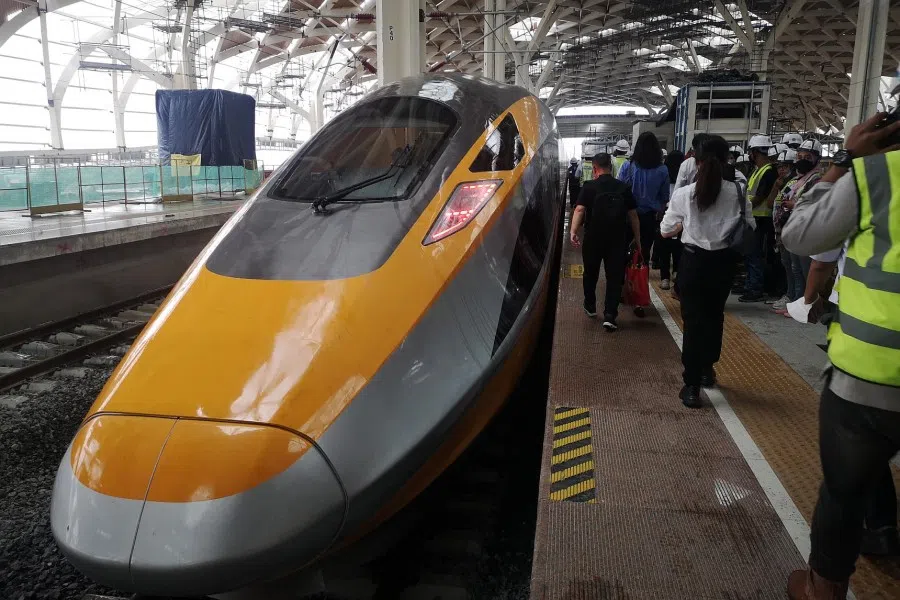
While the Jakarta-Bandung HSR highlights China’s role in enhancing connectivity, its involvement in Kalimantan also reflects a strategic focus on regional integration. A prominent example is the Kapuas Tayan Bridge, which spans the Kapuas River, linking West and Central Kalimantan.
The bridge plays a strategic role in enhancing interprovincial connectivity and facilitating regional trade and mobility across Kalimantan. The construction of the bridge was financed at an estimated cost of US$76.6 million, with 90% of the funding provided through loans from the Export-Import Bank of China and the remaining 10% covered by Indonesia’s state budget.
Furthermore, in Nusantara, Chinese firms also introduced a pilot project for an Autonomous Rapid Transit (ART) system in 2023 — a trackless, sensor-guided tram developed by China Railway Rolling Stock Corporation (CRRC) and Norinco — as part of efforts to build a smart, low-emission public transit network. Although the government returned the ART trains after the trial runs due to performance limitations, Chinese firms remain deeply involved in Nusantara’s transportation sector.
Currently, two major Chinese-led consortia are advancing integrated transportation and road infrastructure projects in Nusantara through PPP schemes: the China Harbour Engineering Company-IJM (CHEC-IJM) consortium (valued at 27.1 trillion rupiah) and the China State Construction Engineering Corporation-China Railway Group Limited (CSCEC-CREC) consortium (valued at 27.9 trillion rupiah).
Technology and digital infrastructure also play a vital role in this partnership. Chinese tech giant Huawei has expressed interest in supporting the development of Nusantara’s ICT ecosystem...
The Kayan River hydropower project in North Kalimantan, designed to generate 9,000 MW of renewable electricity, aims to supply power to the region’s industrial zones and potentially to Indonesia’s new capital, Nusantara. China’s early involvement — particularly through Chinese state-owned PowerChina, alongside the Japanese company Sumitomo — reflected a strong initial commitment to supporting Indonesia’s transition to green energy, despite the eventual withdrawal of both companies, reportedly due to pandemic-related delays and other operational challenges.
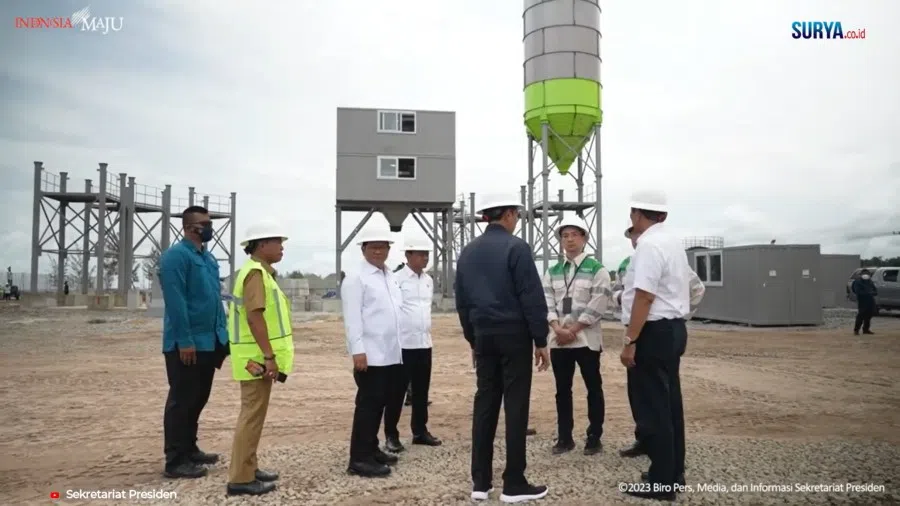
Technology and digital infrastructure also play a vital role in this partnership. Chinese tech giant Huawei has expressed interest in supporting the development of Nusantara’s ICT ecosystem, which aligns well with the capital’s vision of becoming a tech-driven smart city that leverages artificial intelligence and the internet of things (IoT) for efficient urban governance. Huawei’s participation is expected to strengthen Nusantara’s digital capabilities and create new opportunities for local professionals in the emerging smart city sector.
China’s involvement extends to industrial development as well, particularly through the Kalimantan Industrial Park Indonesia (KIPI) in North Kalimantan, touted as the world’s largest green industrial area. With interest and support from several large Chinese companies, the 30,000-hectare zone is designed to host industries such as electric vehicle batteries, petrochemicals and aluminium.
Meanwhile, real estate investment in Nusantara is also on the rise. In September 2024, Delonix Bravo Investment (Delonix Group, a China-based global investment and tourism firm), the first foreign investor to break ground in the new capital, invested 500 billion rupiah in the Delonix Nusantara Commercial Complex, a mixed-use development featuring hotels, offices, sports facilities, green open spaces, and more.
Strategic opportunities and considerations in China’s investment
China’s investment in Nusantara brings more than just financing; it eases fiscal pressure and supports large-scale urban development. With a proven track record in delivering infrastructure, China can help accelerate critical components, from transport systems to utilities. Potential collaborations with companies such as Huawei also promote technology transfer and workforce training, creating jobs in construction, manufacturing, and services linked to new industrial hubs.
For Indonesia, the challenge lies in maintaining a balanced, transparent approach: leveraging Chinese capital and technology while upholding sovereignty, environmental stewardship and inclusive development.
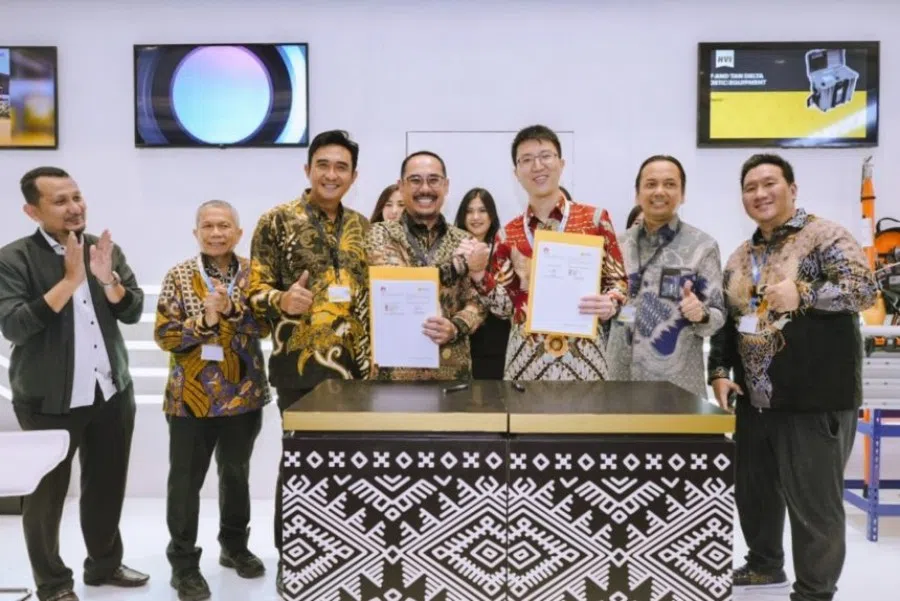
Beyond the economic gains, deeper cooperation with China reinforces diplomatic ties. It may strengthen Indonesia’s bargaining power in broader regional and trade negotiations, positioning the capital relocation as not only a domestic development strategy but a platform for international engagement.
However, these opportunities are accompanied by important considerations. Heavy reliance on Chinese financing raises concerns about debt sustainability and strategic dependency, similar to challenges faced by other countries involved in the BRI. Environmental impacts are another worry, particularly in Kalimantan’s sensitive ecosystems, as industrial projects risk deforestation and could affect indigenous communities.
For Indonesia, the challenge lies in maintaining a balanced, transparent approach: leveraging Chinese capital and technology while upholding sovereignty, environmental stewardship and inclusive development. Strengthening environmental and social safeguards, ensuring meaningful community engagement, and maintaining a multilateral investment strategy will be essential for Nusantara’s long-term success and credibility as a responsibly built new capital.



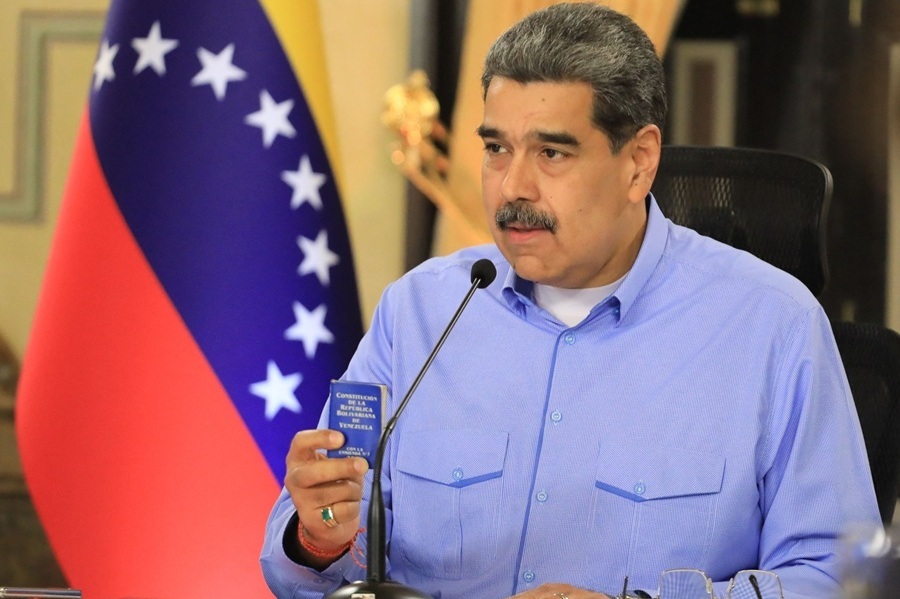

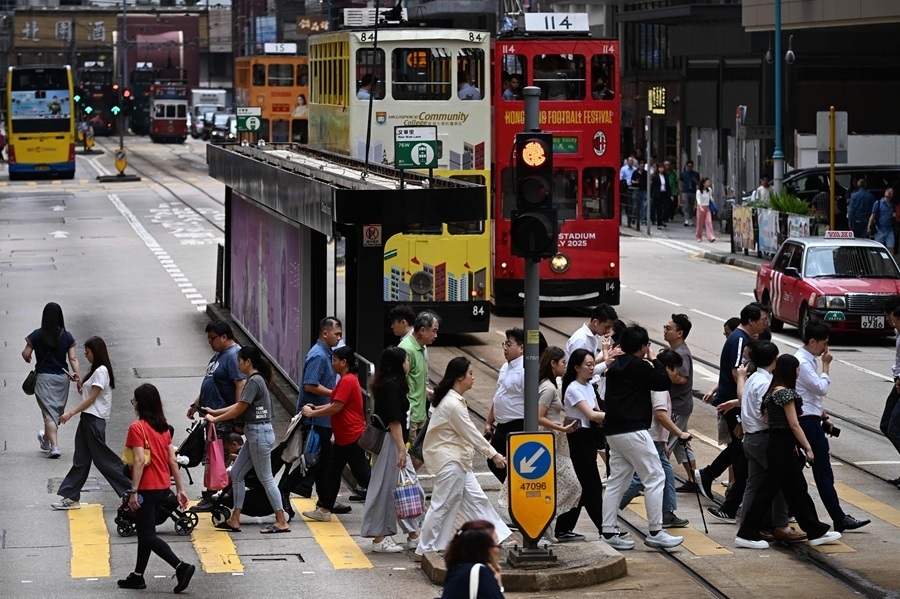
![[Big read] Prayers and packed bags: How China’s youth are navigating a jobless future](https://cassette.sphdigital.com.sg/image/thinkchina/16c6d4d5346edf02a0455054f2f7c9bf5e238af6a1cc83d5c052e875fe301fc7)